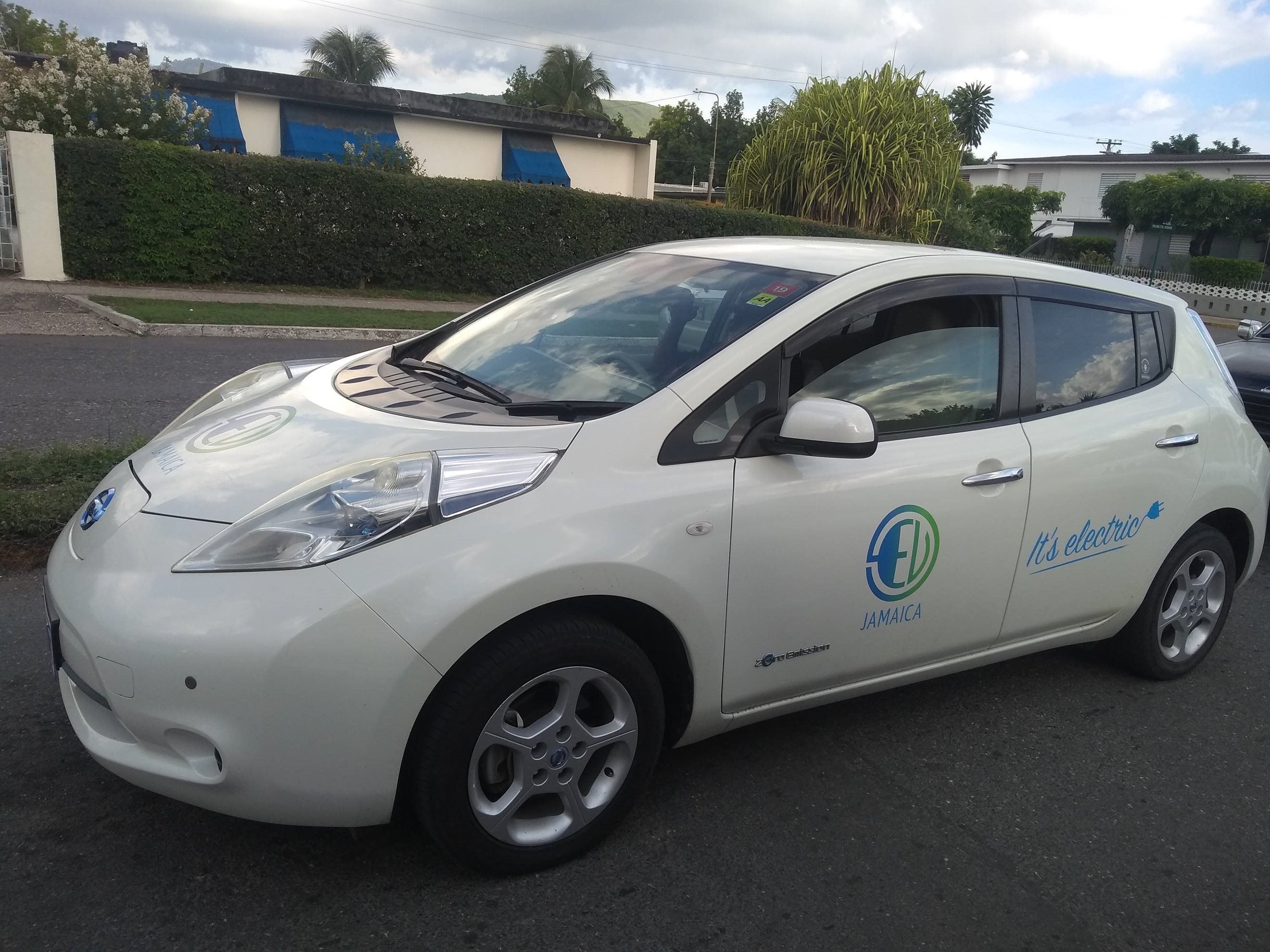The Inter-American Development Bank Group (IDBG) is proud to support the diversification of the energy mix in the Caribbean, promoting energy efficiency and strengthening institutional capacity to implement a seamless and cost-effective transition to low-carbon economies.
For example, in Jamaica and Barbados, about 30% of energy is used for transportation, which consumes more than any other sector. Transportation is also a leading source of greenhouse gas emissions, making it an important target for intervention towards diversification.
In Jamaica, with Jamaica Public Service (JPS) now using liquefied natural gas (LNG) to produce electricity, there’s a ready supply available for other sectors as well, including transportation. A pilot project to evaluate a potential switch from diesel to LNG is already underway at the Jamaica Urban Transit Company (JUTC). The project will be operational by early 2019 with five LNG buses introduced along routes from the company’s base at Twickenham Park. A feasibility study on the project commissioned by the IDB estimated that a phased conversion of the entire fleet through 2040 would yield a modest return on investment of about 9%, provided the JUTC can secure a low LNG price from the supplier.
Several other alternatives to diesel and gasoline are under evaluation for use in public and private transport as well. The global trend towards electric vehicles (EVs) represents an enormous opportunity for the Caribbean, where utilities like Barbados Light & Power, FortisTCI, Grenlec and St. Lucia Electricity Services are reinventing themselves to lead the disruption.
JPS recently commissioned a feasibility study that indicated it could save 21.5% over the five-year service life of its fleet if it replaced its executive and metering vehicles with EVs. Fuel costs would drop by 73% and CO2 emissions would fall by 72%. Avis Car Rentals also participated in the study and found it too would save on fleet costs if it introduced EVs in Jamaica. The fuel savings and eco-friendly option, meanwhile, would allow Avis to charge a premium on EV rentals, the study suggested. The Ministry of Education is also exploring a possible role for EVs within its rural school bus programme.
Transportation has an important role to play in weaning the Caribbean off oil. Provided the region adds enough renewable energy capacity to keep pace with the growing demand from EVs, the fall in oil consumption will be significant. A progressive rate structure that encourages drivers to charge vehicles during daytime hours and strategically sited solar charging stations can also help ensure EVs draw primarily from renewable sources rather than from conventional power plants. Emerging vehicle-to-grid (V2G) technologies, meanwhile, could allow EVs to serve as distributed storage assets when connected, generating revenue for vehicle owners and helping utilities maintain grid stability.
Barbados is well ahead on the path to carbon-free transport. The country has over 300 EVs on the road and more than 80 charging stations[1], thanks largely to Megapower, an EV dealer and a renewable energy developer. The company is installing solar charging stations to help clients meet/offset the demand for electricity from the EVs they purchase. Its success in Barbados is being replicated in other islands of the Caribbean like Grenada, where it supplied Grenlec with an EV fleet and charging stations.
The GoB has taken decisive steps in the promotion of electric mobility. Under the Public Sector Smart Energy Program (PSSEP), a fleet of eight electric vehicles has been purchased and is currently being used by different government agencies. The procurement of two electric buses for use by the BTB under a 12-month pilot project is underway. All vehicles acquired under the project are powered by the installation of solar photovoltaic systems as part of a wider objective of expanding electric vehicle charging infrastructure across the island.
Considering Barbados’ ambitious target to reach 100% renewable energy and full decarbonization in all sectors by 2030, it is expected that over the course of the next decade much focus will be given to greening the supply side and expanding the penetration of renewables as well as transforming the demand side by promoting energy efficiency and sustainable electrification across the economy. Despite all the achievements, much remains to be done and a comprehensive plan has yet to be put in place.
The transition to low-carbon transportation is a critical part of the Caribbean’s commitment to reducing C02 emissions under the Paris Climate Agreement as well. The IDB applauds efforts underway to explore alternative fuels for transport and will continue to support exploratory measures accompanied by updated regulations that reduce or eliminate duties on EVs to encourage buy-in from the private sector and consumers.
The private sector financing arm of the IDB Group – IDB Invest – has special programs in place to support the development of low carbon private sector projects in the Caribbean. These allow IDB Invest to provide increased flexibility in certain terms as well as to offer advisory services around project analysis, design and implementation. We know that energy security is within reach, so let’s continue working diligently together to explore alternatives, analyse data, build knowledge and make wise decisions in a coordinated fashion to guarantee health, happiness and prosperity for this and future generations.
[1] There are approximately 50 public and 30 charging stations across the island.


Leave a Reply